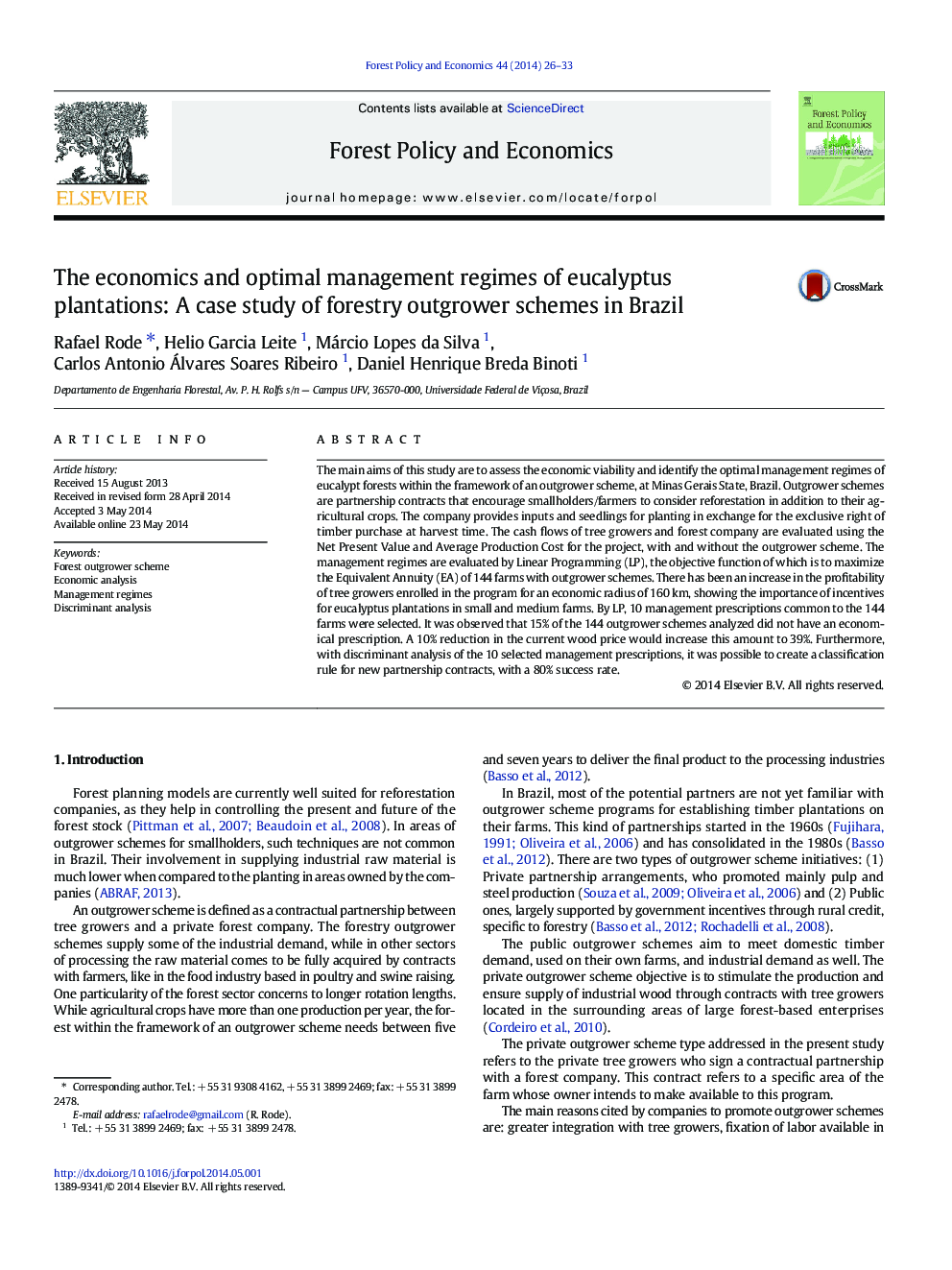| Article ID | Journal | Published Year | Pages | File Type |
|---|---|---|---|---|
| 6544981 | Forest Policy and Economics | 2014 | 8 Pages |
Abstract
The main aims of this study are to assess the economic viability and identify the optimal management regimes of eucalypt forests within the framework of an outgrower scheme, at Minas Gerais State, Brazil. Outgrower schemes are partnership contracts that encourage smallholders/farmers to consider reforestation in addition to their agricultural crops. The company provides inputs and seedlings for planting in exchange for the exclusive right of timber purchase at harvest time. The cash flows of tree growers and forest company are evaluated using the Net Present Value and Average Production Cost for the project, with and without the outgrower scheme. The management regimes are evaluated by Linear Programming (LP), the objective function of which is to maximize the Equivalent Annuity (EA) of 144 farms with outgrower schemes. There has been an increase in the profitability of tree growers enrolled in the program for an economic radius of 160Â km, showing the importance of incentives for eucalyptus plantations in small and medium farms. By LP, 10 management prescriptions common to the 144 farms were selected. It was observed that 15% of the 144 outgrower schemes analyzed did not have an economical prescription. A 10% reduction in the current wood price would increase this amount to 39%. Furthermore, with discriminant analysis of the 10 selected management prescriptions, it was possible to create a classification rule for new partnership contracts, with a 80% success rate.
Related Topics
Life Sciences
Agricultural and Biological Sciences
Forestry
Authors
Rafael Rode, Helio Garcia Leite, Márcio Lopes da Silva, Carlos Antonio Álvares Soares Ribeiro, Daniel Henrique Breda Binoti,
